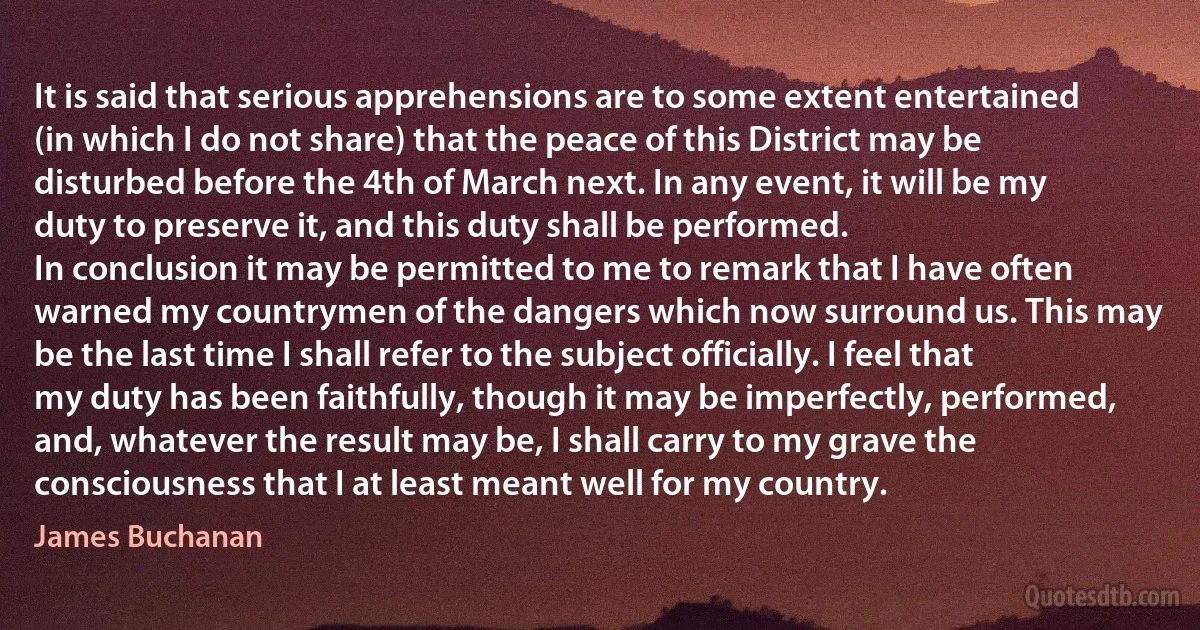District Quotes - page 10
Translated: We are no one's, always at a boundary, always someone's dowry. Is it a wonder then that we are poor? For centuries now we have been seeking our true selves, yet soon we will not know who we are, we will forget that we ever wanted anything; others do us the honour of calling us under their banner for we have none, they lure us when we are needed and discard us when we have outserved the purpose they gave us. We remain the saddest little district of the world, the most miserable people of the world, losing our own persona and nor being able to take on anyone else's, torn away and not accepted, alien to all and everyone, including those with whom we are most closely related, but who will not recognise us as their kin. We live on a divide between worlds, at the border between nations, always at a fault to someone and first to be struck. Waves of history strike us as a sea cliff. Crude force has worn us out and we made a virtue out of a necessity: we grew smart out of spite.

Meša Selimović
I was wrong. I shouldn't have allowed my emotions to get the better of me and lose my cool. I have apologized to Michael Scotto, which he graciously accepted, and will be scheduling a lunch soon. In the weeks and months ahead I'll be working hard for my constituents on issues like flood insurance that is so desperately needed in my district post-Sandy.

Michael Grimm
Then came the journey up to London through Birmingham and the Black District, another lesson, which needed much more to be rightly felt. The plunge into darkness lurid with flames; the sense of unknown horror in this weird gloom which then existed nowhere else, and never had existed before, except in volcanic craters; the violent contrast between this dense, smoky, impenetrable darkness, and the soft green charm that one glided into, as one emerged - the revelation of an unknown society of the pit - made a boy uncomfortable, though he had no idea that Karl Marx was standing there waiting for him, and that sooner or later the process of education would have to deal with Karl Marx much more than with Professor Bowen of Harvard College or his Satanic free-trade majesty John Stuart Mill.

Henry Adams
The first act in the tragedy took place in September 1941, a few weeks after the Germans captured Kiev. One day they ordered all Jews to report at the Lukyanovka district and bring their valuables with them. Thousands of men, women, and children marched out to Lukyanovka, thinking they probably would be evacuated. Instead, Nazi SS troops led them to Babii Yar.

Bill Downs
Civil libertarians do not deny that FISA hampers our ability to counter terrorists. Citing the abuses alleged by the Church Committee, however, they argue that chronic insecurity is the price we must pay to preserve our liberties. But the United States was not a fascist dictatorship before Ted Kennedy and Jimmy Carter rode to the rescue. Our current surveillance rules are nether constitutionally required, nor traditionally American. They were observed neither by Senator Kennedy's elder brothers, nor by any presidents or attorneys general before the Carter presidency. For the first two centuries of our country's history, threats to our national security were countered without warrant. And the Supreme Court, from Olmstead v. U.S. (1928) to U.S. v. U.S. District Court (1972), has allowed warrantless surveillance in national security, as opposed to criminal, investigations.

Mark Riebling
The German Rendering. The German language was divided into as many dialects as tribes and states, and none served as a bond of literary union. Saxons and Bavarians, Hanoverians and Swabians, could scarcely understand each other. Each author wrote in the dialect of his district, Zwingli in his Schwyzerdütsch. "I have so far read no book or letter," says Luther in the preface to his version of the Pentateuch (1523), in which the German language is properly handled. Nobody seems to care sufficiently for it; and every preacher thinks he has a right to change it at pleasure, and to invent new terms." Scholars preferred to write in Latin, and when they attempted to use the mother tongue, as Reuchlin and Melanchthon did occasionally, they fell far below in ease and beauty of expression.

Philip Schaff
The spectacle of the United States Army routing unarmed citizens with tanks and firebrands outraged many Americans. The Bonus Army episode came to symbolize Hoover's supposed insensitivity to the plight of the unemployed. In fact the worst violence, resulting in two deaths, had come at the hands of the district police, not the federal troops, and the blame for the torching of Anacostia Flats was MacArthur's, not Hoover's. But Hoover chose to ignore MacArthur's insubordination and assumed full responsibility for the army's actions.

Douglas MacArthur
[T]here is no doubt that my influence in the Liberal Party suffered severely from my neglect to put my case before opinions had hardened and prejudices had been created. Misrepresentations were soon broadcast throughout the land, and time was given for them to strike root in the soil, and when I regained leisure it was too late to eradicate them. Most of this work was done privately at confidential gatherings of Liberal associations throughout the country. Missionaries were dispatched from Headquarters at Abingdon Street to every district to spread tendentious reports of the origin, motives and methods of the crisis. At secret conclaves much could be said which the presence of a newspaper reporter would have checked. Some salient facts were suppressed; others were distorted, and when I resumed my political activities after the War was over, I was amazed at the beliefs that were current as to what had really happened.

David Lloyd George
Sometime afterward, a terrible misfortune occurred which was in no way calculated to allay the superstitious fears of the ignorant. As some eight or ten citizens were returning with the ferry-boat which had crossed the last Mormons over the Missouri river, into Clay county, the district selected for their new home, the craft filled with water and sunk in the middle of the current; by which accident three or four men were drowned! It was owing perhaps to the craziness of the boat, yet some persons suspected the Mormons of having scuttled it by secretly boring auger-holes in the bottom just before they had left it.

Josiah Gregg
Of course, it is only in the crassest propaganda literature that the Brahmins are dominant and therefore rich. According to a survey in Karnataka in the late seventies, Brahmins were the poorest community there. In a district in Andhra, 55% of the Brahmins lived below the poverty line, substantially more than the local as well as the national average.

Koenraad Elst



